



Health Rising’s ME/CFS and FM Experts panel answers one question a month from the ME/CFS and FM communities. The April question picked by community vote involved a patient with signs of viral reactivation. We were looking for a variety of answers and we got them.
Learn more about the ME/CFS experts panel here and here. Next month we welcome Dr. Courtney Craig, a recovered ME/CFS patient and chiropracter/nutritionist to the panel. Suggestions for more panel participants are welcome. We’re particularly interested in practitioners using alternative approaches.
Not all the experts provided answers but prepare yourself – this is a long post!
(Update – The answers to the April question were delayed because of email problems and because of my own tardiness. Because it took so long to get this blog together we’re not going to go through another round of questions. Instead we’re going to use the second place finisher – the gut question – from April round – for this month. (It beat out the cognitive question by one vote.)
Beverly’s Question
The fatigue, pain and muscle spasms are unrelenting! I was diagnosed May 2011 and have EBV and CMV reactivation. I seem to be getting worse instead of better. I am easily stressed by the smallest situation. I know EBV is a stress activated virus, I was never easily stressed before my diagnosis. It has gotten worse in the past year.
My Naturopath takes my pulses prior to an acupuncture treatment and sometimes my immune system is barely functioning and other times it is hyperactive fighting the viruses.My rheumatologist just seems to want to keep me on the Acyclovir saying it could take years to work.I am very discouraged. And I have gained so much weight due to being inactive and unable to exercise.What do you suggest?”
Beverly’s Clinical Data
Gender – Female Duration of Illness – 3-5 years Co-Morbid Disorders – ME/CFS, FM and MigraineFunctional Level – 3 – usually confined to house
Test Results You Think May Apply
- CMV Ab,IgG 10.4 with reference range Positive = 0.69
- CMV Ab,IgM 8.0 with reference range Positive = 1.0
- EBV Ab,IgM – My most recent labwork (Feb 2014) was done through LabCorp and says my EBV IgM < 0.2
My previous labwork (2 separate ones Aug 2012 and Feb 2012) were done through Quest and doesn’t give a number result, only that it is Negative. Says: < OR = 0.90
Drugs You’re Currently Taking
- Baclofen 20mg 3x/day
- Acyclovir 400mg 2x/day
- Relpax 40mg as needed
I use Acupuncture and CranioSacral Therapy for pain relief and healing, and Chinese herbs as formulated by my Naturopath
Supplements You’re Currently Taking
Lysine, Zinc during breakout of mouth sores, krill oil, grape seed extract, Vitamin C, magnesium citrate, DHEA, Vitamin D3, Vitamin B12 complex, essiac tea.
ME/CFS Experts Further Questions
Dr. Kaufman asked about her EBV results (not given at the time) and Dr. Bateman asked numerous questions which are given below with Beverly’s answers. All the experts were given the additional questions and answers.
1) INFECTION: Does she have any place in her body that seems “infected”—sore throat, cough, sinuses, etc., and what are the symptoms?
Yes. My illness seemed to start with an upper respiratory virus in October 2010 and had a lingering cough off and on for 5 months (never went to the doctor though, my adult son had the same thing with the same symptoms and “lingering” effects, we just doctored ourselves at home), followed by Fibromyalgia symptoms setting in (all over body aches and pains, extreme fatigue, tender points, etc) February 2011. To date, I continue to have a cough, usually dry, sometimes wet, but always consistently at night about a 1/2 hour after I lay down to sleep, and sometimes it will wake me from my sleep during the night. I do have plans to ask my doctor for a chest xray when I see her end of May.
I have a constant sore throat – it gets better during the day. Assume it is a symptom of CFS. No signs of injection. It gets worse when I have a flare in the fatigue, after stress or too much activity. When I get the mouth sores, it sometimes feel like I have them in my throat too although I cannot see anything.
Historically I did have mono at age 15. I don’t remember exact dates, but it so interfered with my sophomore year of high school that I had to take an Incomplete and repeat the grade
The acyclovir has only helped minimize the outbreaks of canker sores in the mouth. I found this out after having been on it for one full year without any improvements in any symptoms, or so I thought. After having been off of it for 3 months and having constant breakouts of the mouth sores, I told my doctor and she put me back on it. It took a couple of months, but it seems to be helping again as I have not had a mouth sore in almost a month now (I have been back on it since January 2014). I have not had any bad side effects from it. I take 400mg twice daily.
2) PAIN: Where is her pain (details), when, and how severe is it?
Pain is head to toe. I will try to detail as follows:
Head: I always have a headache, ranging from mild to migraine. I wake up with it and it gets worse as I start moving. I attribute most of it to bulging discs in the neck. I got a mouthguard to wear at night which has helped the early morning headache, as I found myself clenching from pain during the night, but I still often wake around 3-4am with a headache.
I have a “barometer head” and am greatly affected by low pressure weather systems – always have been since my late teens. If I lay on my back, so that I am on the back of my head, I will get a horrible headache that cannot be improved with any medication. Assuming it comes from the Occipital area of my head. Daily average pain is a 5
Neck/Shoulders: Pain from constant muscle spasms. Gets worse when using my arms such as sitting here typing, washing dishes, driving (which I rarely do), etc. I do have disc herniations in the cervical spine. Daily average pain is a 7
Arms/Wrists/Hands: Pain from tight muscles. If I do any kind of exertion such as pick up my small dog (10 pounds) or carry a gallon of water, my biceps feel like they are on fire within a few hours but then settle down after some deep self-massage and 24 hours. I do have major trouble with my elbows in that if my arms are bent more than 90 degrees for more than a couple of minutes, I get tingling in the hands as well as severe elbow pain. Then when attempting to straighten the arm again, it feels like a vice is squeezing the elbow and the pain is excrutiating.
I get wrist pain from sitting here trying to type this and hand pain from typing or doing any kind of small movements, such as I am unable to peel/slice vegetables and have trouble buttoning clothing. Excrutiating pain if I have to drive where I have to grip the steering wheel.
I do have diagnosed arthritis in the hands. Early morning is the worst stiffness/pain for the hands. I do have periods where I feel like I am flaring, and then my arms, hands and fingers ache deep into the bone, like they are in a vice, especially the areas below the elbow. Daily average pain is a 4
Mid-body: Immediately upon waking and continuing for about an hour, I feel like I have been a punching bag during the night. My ribcage (subcostal) feels bruised. This area is also quite tender at all times making it painful to wear a bra as well as a chiropractic adjustment bothers me (it didn’t used to). Get a “cramp” in my mid-thoracic spine when I use my arms such as reaching upwards to wash hair, reaching forward to wash or put away dishes, hang up clothes, etc. Daily average pain is a 5 (it is a 9 first thing in the morning)
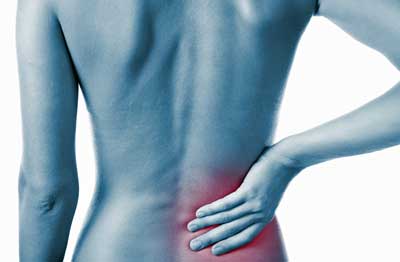
Back and hip problems preceded Beverley’s ME/CFS/FM but were under control until she came down with them
Lumbar/Sacral/Hips: Constant excruciating pain, this is my most problematic area. I do have some bulging lumbar discs and one herniation (and DDD) from 2 car accidents in 2002 and 2009, but prior to March 2011 this pain was under control.
When the pain started up in 2011, I thought I had thrown something out of place by bad bouts of coughing with a virus for the past 5 months, but it has been unrelenting, with only brief (maximum 48 hours) relief from chiropractor, acupuncture, massage and/or craniosacral therapy or any combination thereof.
Pain pills don’t touch it, steriods and anti-inflammatories have not touched it. MRIs and Xrays have been done to rule out Ankylosing Spondylitis. I am unable to sit for more than 10 minutes (2-3 minutes on a hard chair) without worsening pain in the area. I am unable to lay flat on my back for more than 10-20 minutes without worsening pain in my sacral area.
I will say that I had a 3 day course of Cipro in March 2012 for a suspected UTI (culture came back negative) and my back was pain-free for these 3 days. Daily average pain is a 9.
Knees/Legs: Muscles are tight even with stretching so that is where any pain comes from. Except for the achilles and calf areas – these areas are in a constant spasm. My massage therapist often finds that the 2 muscles in the calf are “stuck together” rather than supple and able to glide back and forth over each other. This area is also worsened by walking or driving (driving is rare). I do have periods where I feel like I am flaring and then, my lower legs ache deep into the bone, like they are in a vice. Daily average pain of knee/leg is a 2, but achilles/calf is a 5
Ankles/Feet: My feet were actually one of my first complaints as a symptom in February 2011. I equated the pain to standing barefoot on hot pavement and having them burned on the bottom. This pain comes and goes, is not as often as it was in the beginning. My ankles and feet are in a constant spasm and feel like they need to crack. Sometimes I am able to “roll them” around and get them to crack. I have a history of plantar fascitis in one foot but this is a different kind of pain and the pain is also in the top of the foot, like things are just tight. I am unable to stand more than 5 minutes without worsening pain and extreme fatigue to the point of feeling faint. Daily average pain is a 5
3) SLEEP: Can she describe her sleep issues, if any? Sleep and napping patterns?
Night sleeping is a huge issue. I go to bed around 11pm but most nights lay there wide awake until at least 1am, on occasion 3-4am. I leave lights out and just listen to music or have white noise going on. I don’t feel that these noises keep me awake, because when I lay down for a nap, I often have the tv on and I zonk right out. No matter the time I get to sleep, I wake in 1-2 hour increments. I do not work, so I generally sleep until my dog wakes me up around 8am.
Daytime napping: I used to lay down to rest around 10am, sometimes sleeping until 11am, forcing myself to get up. Unfortunately this generally makes me feel even more fatigued, so sometimes I just push through and don’t sleep, just rest in a recliner. I always lay down around 2pm and sleep until 4pm (I could probably sleep longer but force myself to get up so as not to interfere with night sleep). Again, do not feel rested.
During whatever time periods that I am asleep, I toss and turn from side to side due to pain in the neck and hip area. I have a very comfortable pillow-top bed with a 2″ memory foam and a thick down mattress cover. I have trouble getting comfortable sleeping on my side, because along with the hip pain, I have shoulder pain and also try not to bend my arms due to the elbow problems, and I also cannot lay on my back due to sacral and head pain (all as stated above under the Pain section).
There have been a few nights very recently, and I cannot put my finger on anything, where I have laid on the couch and fallen asleep about 9pm. My dog will come and wake me up at 10pm to go outside. After letting her out, I will go to bed, but still wake in the 1-2 hour increments.
I have tried multiple remedies: Advanced sleep aid from Vitamin Shoppe and Calms Forte – neither helped me get to sleep or stay asleep, but they did seem to help me get back to sleep faster on the times I woke to turn over. Even on the rare occasion I take a pain pill, it has the same effect on sleep as the aids. The one night that I sleep the best is the night after I have had an acupuncture treatment (which is only one treatment monthly due to financial constraints). On that night, I can go to bed at 11pm and sleep until 5-6am (with minimal turning side to side).
No matter the amount or quality of sleep, my body doesn’t seem to fully “wake up” until after 10-10:30am. Odd thing is, I find it easier to fall asleep, and stay asleep, during the day than at night. I often wonder if I just let myself sleep when it wants to, what would that be like. Would you advise doing that? Is it more harmful than what I am currently living through?
4) EXERCISE: What happens when she tries to increase her activity level, such as start a walking program or do yoga?
I have tried to increase my activity level gently, such as slow walking on my treadmill for 3 minutes but I cannot go more than 2 days without an increase in severe fatigue. My Rheumatologist advised me to slow walk 5 minutes every other day 3x a week, but I just can’t manage that.
If I walk outside, I walk slowly about 3 blocks roundtrip but start losing my balance and can twist my ankle on the last half of the trip. (I am currently seeing a Neurologist to determine why I stumble/fall/stub toes). I feel a “good tired” initially but then severe fatigue sets in about an hour later. It is rare that I walk outside though, due to the chances of twisting my ankle and getting stuck away from home, plus the heat/humidity here in Florida greatly fatigues me.
I very recently had a family member with a health issue so I HAD to travel to the Emergency Room on Sunday evening (stayed 2 hours plus 1 hour commute round trip (I was driven) which put me into such excruciating pain that I had to take a pain pill, then on Tuesday I had a dentist appointment followed by a Nerve Conduction Study at the Neurologist’s office.
Having these 2 “full days” back to back (activity as well as sensory overload) sent me into a tailspin to which I have not yet recovered (it has been 2 weeks). I feel “wired” and so extremely fatigued that I feel like I am dying on the inside. There is no improvement in my sleep pattern even though I am having a flare in the fatigue level, in fact it is worse.
I have not attempted yoga to any extent due to back pain and balance issues. I have attempted to use Therabands but it flares my neck pain. I do gentle stretching in bed as advised by my Rheumatologist. I try do daily “piddling” around in the yard, watering plants or watching birds and butterflies. As long as I pace myself and don’t exert, I can last about 20 minutes before I feel like I overdid things.
However I live in Florida and I am greatly affected by the heat and humidity that has now arrived for the season so my time outside is limited to early evening. I have tried to do mornings but the heat and humidity has as much effect on my fatigue as exercise does! Simply standing in the sun, or even in the shade (but still feeling humidity) wipes me out!
I try to accompany my daughter to the grocery store but find between getting in and out of the car, walking the aisles, being exposed to multiple smells/lights/sounds/people, I get greatly fatigued and need about 4-5 days to recover. I attempted to use the heated swimming pool at the neighborhood gym last year, going once a week and just “moving” arms and legs for 15-20 minutes, it felt really good while doing it, but afterward I was so drained for about 3-4 days, as well as I found I was super sensitive to the chlorine so I stopped going.
5) LABS: I need clarification on her EBV IgG, IgM and CMV IgG and IgM and what they were in at least 2 points in time, preferably near the start of her illness and now. I also need basic lab results like ESR, CBC, CMP, TSH, or to know they are normal.
Assumed onset of illness is 10/2/10 (my birthday, so I remember it well). Most major symptoms began February 2011.
EBV
- EBV first test at 12/29/11: IGG >5.0 (range H), IGM < or =.0.90 (range N) EBNA IGG = 4.72 (range H), Used Quest Labs
- EBV next test at 8/2/12: IGG >5.0 (range H), IGM < or =.0.90 (range N) EBNA IGG >5.00 (range H) Used Quest Labs
- EBV last test at 2/5/14: IGG >8.0 (flag H), IGM <0.2 (range N) EBNA not taken Used LabCorp (due to insurance)
CMV
- CMV first test at 8/2/12: IGG 2.98 (H), IGM 0.41 (N)
- CMV last test at 2/5/14: IGG 10.4 (H) , IGM <0.90 (N)
HSV
- HSV1 first (and only) test at 8/2/12: IGG >5.00 (range H), IGM 1:20 (range H)
- HSV2 first (and only) test at 8/2/12: IGG 0.21 (range N), IGM 1:20 (range H)
I also had some kind of weird illness in 10/31/07 (lots of pain and stomach problems-lasted about 6 weeks) and labs showed Parvovirus B19 IGG 5.8 (H), and IGM 0.2 (N).
Historically I had Scarletina has an infant, and Mono at age 15. My mother has Lupus, Raynaud’s and Autoimmune Hepatitis but multiple testing reveals no signs of Lupus in me. CRP, ESR and ANA always come back negative/normal
Basic labs: ESR, CBC, CMP, TSH
- 5/5/11: CRP 0.42 (N), ESR 11 (N), RF 8 (N) CCP IGG 19 (N, weak positive starts at 20),
- 4/5/12: CRP 0.31 (N), TSH 3.24 (N)
- 11/8/12: CRP 0.26 (N), ESR 8 (N), TSH 3.68 (N)
- 7/3/13: ESR 11 (N)
- 2/5/14: ESR 3 (N) *Note had been on Methylprednisolone since 11/13, CRP 3.0 (N)
ALL CBCs and CMPs have been normal except at 2/5/14 when:
- WBC 10.9 (H)
- Neutrophils 76 (H)
- Neutrophils (absolute) 8.2 (H)
- Creatinine, Serum 0.56 (L)
- BUN/Creatinine Ratio 25 (H)
Other labs that have been abnormal:
- DHEA Sulfate = 26 at 2/2/12 and 31 at 11/8/12 (now supplementing but no retesting done to date)
- HLA B27 Antigen = Present at 5/5/11
- Vitamin D3 = 23 at 4/10/12, 30 at 11/8/12 (taking supplement)
- PTH, Intact 92 (H) at 11/8/12 (I just noticed this was H, apparently my doctor missed it)
Other labs of mention:
7/19/12
- Immunoglobulin A = 108 (N)
- Immunoglobulin G = 1007 (N)
- Immunoglobulin M= 74 (N)
- Sjogren’s all negative
4/5/12
- T4, Free 1.1 (N)
- T3, Free 2.7 (N)
11/8/12
- T4, Free 1.2 (N)
- T3, Total 115 (N)
2/5/14
- Ferritin, Serum 109 (N)
6) Physical Exam: I need her BMI, Blood pressure and Pulse.
- BMI 31.3
- BP I don’t remember the exact numbers but it was 140-something/high 90s at the last doctor visit in Jan 2014. Normally I am in the normal range but it does go up with pain which I was in a lot of at the last appointment (and which the BP cuff causes). I have never been diagnosed, or even concerned, about high blood pressure
- P 76 (my daughter, an RN and living at home, just took this for me as I was sitting up in a chair)
7) It would help to know if there are any drugs she has tried, and how she tried them, that DIDN’T work previously
- Prednisone = could not tolerate this more than 3 days – do not recall dosage
- Methylprednisolone = 3 months @ 4mg BID did not seem to help. Weaned on and off with 4mg once a day.
- Sulfasalazine = 500mg once daily while weaning off the methylprednisolone, then 500mg BID. BID caused stomach distress so weaned off and discontinued.
- Acyclovir = 400mg BID. Was initially on this from 11/12-11/13 and it did not seem to affect any symptoms. However, after stopping (per my doctor) my mouth ulcers seemed to increase, so she had me restart it 1/14. Finally by 4/14 the mouth ulcers have calmed down. So the Acyclovir must be helping the mouth ulcers. I continue to take this.
- Cipro = as mentioned above under back pain, I took a 3 day course for a suspected UTI @ 3/12 and it helped my back pain but upon discontinuance the pain returned.
- Plaquenil has been prescribed but due to the fact I am Glaucoma suspect (from years of Topamax usage) I refuse to take it due to side effects affecting the eyes.
- I do take 20mg Baclofen 2-3x/day to help with muscle spasms.
- I take 1000mg Lysine daily per my Rheumatologist
- Rheumatologist has mentioned possibly trying Doxycycline in the future. I will see her again end of May 2014 and discuss.
- I also utilize a NaturoPath and received Chinese herbs, sometimes homeopathy, and Acupuncture. She helps my pain for a couple of days, but nothing has ever helped my fatigue. She explained it is because my body is busy fighting viruses.
Chronic Fatigue Syndrome Experts Answers
Experts answers are given in the order received. (Because Dr. Bateman’s email service mysteriously kept blocking my messages – she didn’t the get questions until long after the other experts – her answer is at the end).
Almost everybody who answered concluded she was either on the wrong antiviral or at too low of a dose for it make a difference. Most doctors suggested antivirals although Dr. Myhill suggested building up other parts of her body first. Several doctors felt testing for hyperparathyroidism was important. As expected some doctors proposed thyroid supplementation while others did not. One doctor proposed looking for small fiber neuropathy.
 Dr. Martin Lerner
Dr. Martin Lerner
 Dr. Jacob Teitelbaum
Dr. Jacob Teitelbaum
- In CFS/FMS, especially given the severity of your illness, CMV and HHV-6 IgG titres over 4 would raise a concern of viral reactivation. Unfortunately, the Acyclovir at the dose you are taking would be fairly useless for this, as it is not high enough and it is not active against these 2 viruses. In my patients with suspected viral reactivation, I consider Valcyte for 6 months, following symptoms and titres. I also am adding Celebrex, which interestingly seems to enhance the antiviral effect, and the supplement Pro Boost 1 packet under the tongue 3 x day for 3-6 months.
- I do NOT use lysine to suppress herpes in CFS/FMS/ME, as it works by depleting arginine (which is food for herpes) and the Arginine is critical for growth hormone production. Though I generally prefer natural options, in CFS/FMS/ME I prefer suppressing herpes outbreaks with the antiviral medication (Valtrex 500 mg at bedtime or 1 gm 4 x day at first sign of an outbreak)
- In your case, your CMV IgM is also elevated suggesting an active acute viral infection rather than reactivation. If the CMV IgM stays elevated for 3 months or more, a severe immune dysfunction (beyond the normal one seen in CFS/FMS/ME) needs to be considered. Whether I would go with Valcyte now depends on your overall picture (how long has the CMV and EBV IgM been elevated, which EBV IgM antibody is elevated, Is the HHV 6 IgG over 4 or 1:640 or higher, did your symptoms flare in the last 6 weeks suggesting acute CMV or have they been steady suggesting chronic infection, etc). I likely would treat in your case
- I would consider thyroid treatment regardless of the labs
- If low blood pressure , irritable when hungry, lightheaded on standing (orthostatic intolerance) , HgBA1C level of 5.3 or lower, or 9 am fasting cortisol under 16 mg/dl is present I would consider adrenal support
- I would check IgG 1-4 antibody levels to look for immune deficiency. If low, gamma globulin IV or even IM (the latter is much less expensive) can be very helpful for your overall CFS/FMS function and pain (may take 4 months to start working )
- Treating with the entire SHINE protocol can be dramatically helpful to you overall , as well as for treating immune dysfunction and viral reactivation. See http://www.vitality101.com/shine
In response to further answers from Beverly Dr. Teitelbaum added:
- It is key that the elevated PTH be addressed, as hyperparathyroidism will frequently cause FMS
- I would consider a trial of Valcyte with Celebrex as the high CMV IgG suggests viral reactivation
- Check a morning cortisol (fasting by 10 am). If under 16 mg/dl a trial of low dose cortef (15mg a day or less) is a consideration. This aacts VERY different than the high dose steroids. While checking the Morning cortisol, check a PTH, calcium , magnesium, ionized calcium, free and total testosterone, and HgBA1C and HHV6 IgG blood test. If insurance covers, consider an IgG 1-4 subset testing ( Immunoglobulin G, subclasses 1-4, serum” . Looks for antibody (immune) deficiencies). Also vitamin D levels (a 25 OHD and 1-25 OHD)
Hope this is helpful.
Love and blessings
Dr. Andrew Kogelnik
Dr. Andrew Kaufman
Dr. Kent Holtorf

I would order natural killer cell function and number, C4a, Coags (d-dimer, TAT complex, prothrombin fragment 1 & 2, fibrin monomer), Lp(a), PTT, eosinophil cationic protein and VEGF. See multiple dysfunctions in the above labs in about 50-80% of such patients described below so need to look deeper.
If any of above tests are positive, would consider Lyme culture and/or Igenex Lyme and coinfection testing. Best if provocation Igenex with antibx.
In terms of treatment: Acyclovir is not effective against CMV.
In terms of treatment, essentially all CFS, ME/CFS and chronically infected patients are low thyroid despite “normal” TSH and standard blood tests. See the nonprofit site National Academy of Hypothyroidism. Check adrenal function, make sure sleeping, give mitochondrial support, which has been nicely outlined by Jacob Teitelbaum (SHINE protocol).
While the EBV and CMV infections are probably not the primary infection (something else is causing the immune dysfunction that is resulting in the reactivation) and very likely also positive for HHV6 (should be done at Focus labs). If stuck on treating the viruses, which is probably not the best route but could be helpful with something such as Kutapression or Isoprinosine, a range of antiviral herbs, large doses of colloidal silver or could use Valcyte. Ozone would be a good option, especially combined with IV silver. Would be best to do a more through infectious workup but could do based on the current viruses detected.
Immune modulators could also be of benefit, including natural modulators like Immunostim, thymus and shots of gamma globulin 0.3-1 gram IM q 1-2 weeks (potency increased with 10 units of Pitocin).
Dr. Sara Myhill
Overview of management of CFS

So in treating many patients with chronic fatigue syndrome one has to look firstly at energy delivery mechanisms and in thinking about this a very useful analogy is to think of the body as a car which means the mitochondria constitute the engine of the car, the diet the fuel, antioxidants the cooling system, thyroid gland the accelerator pedal, adrenal gland the gear box and sleep for service and repair. The fuel of the engine depends on not just the diet but also the gut – what we see in many people with fatigue syndromes is a fermenting rather than a digesting gut. A greatly overlooked cause of fatigue is inadequate sleep – one can now purchase apps for mobile phones to monitor sleep for quality and quantity. Undiagnosed sleep apnoea, hyper-vigilance and nocturnal hypoglycaemia are common problems.
One then has to look at energy expenditure – roughly two thirds of all energy expenditure goes on basic housekeeping duties i.e. essential heart, brain, gut, kidney function and so on. Any energy left over can then be used for mental and physical work. However, there are two common holes in that energy bucket – one is the emotional hole but the second is the immunological hole. The immune system essentially is our standing army and standing armies are greatly demanding of raw materials and energy. Sometimes that energy is spent usefully in fighting foreign invaders such as viruses and bacteria which would otherwise overwhelm the system and kill us. However, all too often our energy is spent worthlessly in allergies and/or auto-immunity – this not only uses up resources but also damages the body.
So there is an overall package of treatment that needs addressing with respect to the above factors and that starts off with: proper pacing, good quality sleep at night: www.drmyhill.co.uk/wiki/Sleep_is_vital_for_good_health_-_especially_in_CFS, stone age diet which is of low glycaemic index and avoids the major allergens: www.drmyhill.co.uk/wiki/Stone_Age_Diet, generalised package of nutritional supplements: www.drmyhill.co.uk/wiki/Nutritional_Supplements together with avoidance of chemical exposures.
Very often these interventions, done well, are sufficient to cure many patients. Indeed I would not consider tackling the specific problems that Beverley describes because many resolve when the above interventions are put in place.
Beverly’s case
It is very difficult to answer Beverly’s questions specifically without knowing what she has already done. All aspects of energy delivery mechanisms as detailed above need addressing. My experience is that the mitochondrial function tests are often helpful: www.drmyhill.co.uk/wiki/Mitochondrial_Function_Profile
When Beverly says pain I presume she means muscle, joint and connective tissue pain. This may well be symptomatic of poor energy delivery mechanisms (i.e. mitochondria, thyroid, adrenal, gut function etc) because in this event there is an early switch from aerobic to anaerobic metabolism with the production of lactic acid. Lactic acid is painful and indeed lactic acid burn of the heart we call angina and is a common symptom in my severe CFSs. Do have a look at: http://drmyhill.co.uk/wiki/Fibromyalgia_-_possible_causes_and_implications_for_treatment
Increasingly I am recognising the clinical picture of allergic muscles – the idea here is that any part of body can react allergically, muscles react with spasm and this is excruciatingly painful. The commonest foods that cause this are the dairy products but any food can be implicated. www.drmyhill.co.uk/wiki/Allergic_muscles
Migraine is the allergic headache so if Beverly is currently experiencing this then this suggests she has unrecognised allergies. The commonest cause of migraine are the dairy products. Blood tests are unhelpful in determining allergies – good detective work is needed. Dairy allergy typically results in recurrent sore throats, catarrhal conditions and sinusitis. Allergy can cause systemic fever – hay fever is called that for good reason – but it results from allergy to pollen.
Magnesium deficiency is another common cause of muscle spasm – essentially calcium is needed for muscles to contract and magnesium to relax. Wherever there is muscle spasm there is potential for the muscle to damage itself – that means micro-tears appear in the muscle which require the immune system for healing and repair.
Weight gain is typical of hypothyroidism – that is an essential part of energy delivery mechanisms and immune modulation. A helpful starting point would be to measure a free T4, free T3 and TSH but blood tests never entirely exclude the possibility of a thyroid problem. Increasingly I am seeing problems with thyroid hormone receptor resistance – do have a look at:-www.drmyhill.co.uk/wiki/Thyroid_-_the_correct_prescribing_of_thyroid_hormones
Only when all the above had been put in place would one consider anti-virals on the grounds that the recurrent sore throats and fevers may be triggered by. Work done by Dr. Martin Lerner has demonstrated that antivirals in CFS can be very helpful. See http://drmyhill.co.uk/wiki/Valacyclovir_in_the_treatment_of_post_viral_fatigue_syndrome
Finally I is important to understand that there are likely to be more than one mechanism for Beverly’s fatigue! All the issues have to be addressed at the same time to see the full picture. There is also a time element and patients do not recover in a linear fashion but in quantum leaps . See http://drmyhill.co.uk/wiki/CFS_-_Catastrophe_theory:_why_we_get_into_and_how_we_get_out_of_CFS
Dr. Bateman
Here is my initial assessment and advice for next steps:

I have a general approach to workup and treatment as follows:
- Identify and treat all other medical problems (can be a significant task)
- Learn to “pace” activity to minimize the extent and severity of PEM
- Specifically address and compensate the “4 table legs”
Sleep—seek routinely restorative sleep
Pain—reduce severe pain with targeted therapies
Physical conditioning—try to minimize deconditioning without causing PEM
Mental health— do everything possible to minimize grief, discouragement, depression, anxiety
In this case we have quite a bit to do:
1) Identify and treat all possible contributing medical problems
Herpes simplex. Recurrent “cold sores” suggest herpetic outbreaks, and the “mouth sores” are probably herpetic outbreaks as well. The presence of IgM antibodies is abnormal, and would be an additional reason to treat aggressively. I would minimally suppress with chronic therapy as she is currently doing. Antiviral therapy is not always helpful for ME/CFS, but when it is, the dose is high and a long acting agent is used to give sustained blood levels, and treatment is done for 6-12 months. Acyclovir 400 mg bid is not a high enough dose, is too short acting, and dosed twice a day will not give sustained blood levels. I would take acyclovir 800 mg every 8 hours, or switch to valacyclovir 1 gm or famciclovir 500 mg twice daily.
The elevated EBV and CMV IgG levels reflect chronic immunity from a previous infection, but there is something a bit suspicious about these because the levels of IgG antibodies have increased over time, suggesting either reactivating infection, serial re-exposure, or something else driving increased antibody production. This is another argument to treat with high long lasting doses of an antiviral for at least a year, as suggested above.
Parvovirus IgG is evidence of previous infection with parvovirus as far back as 2007, before onset of this CRE/FM illness. Parvo is thought to be a possible cause of ME/CFS, but the timing is not as suspicious in this case. The only effective treatment is IVIG, which is not indicated at this time, because the infection isn’t proven and insurance is unlikely to cover treatment without supportive evidence.
Autoimmune disease is on the list of possible causes or co-morbid conditions because of the strong family history in her mother, and her positive HLA B27 lab value. So far no clear diagnosis has emerged, but that doesn’t eliminate autoimmune disease.
The lack of response to methylprednisolone and sulfasalazine speaks against an inflammatory rheumatologic illness, but there are other types of autoimmune disease that might be more difficult to diagnose, including small fiber polyneuropathies, which might cause the severe pain in the feet and hands as described, and can be triggered by a viral infection. This diagnosis is made by skin biopsy and can be missed on routine neurologic exams, EMG, MRI, etc.
- Learn more about small fiber neuropathy in FM here
Hyperparathyroidism is an important diagnosis supported by the high PTH value. This illness is usually caused by a parathyroid adenoma overproducing the hormone and can cause symptoms very similar to ME/CFS/FM. It is treated with resection of the adenoma and is potentially curable.
- Learn more about hyperparathyroidism and Fibromyalgia here
Chronically low Vitamin D levels can also cause elevation of PTH, and is potentially correctable with oral supplementation. Her Vitamin D values aren’t severely low, so I am not convinced this is the cause. Supplement anyway and see if the PTH corrects before pursuing surgery.
Chronic cough and sore throat warrant careful workup for lung disease and GERD. I suggest a chest x-ray, pulmonary function tests and treatment of or evaluation for nocturnal reflux.
Cervical spine problems (disc, spur, narrowing) may be problematic after two motor vehicle accidents, and can lead to severe headaches, shoulder/neck pain, and even pain and weakness problems in the whole lower body. FM amplifies the pain. A qualified provider should help recommend the best interventions for the primary problem, and then best treatment for FM will reduce the pain amplification.
Lumbar spine problems may have progressed, and be amplified by the FM. Either way, there may be additional treatments that will help reduce the pain and increase function. Same as above.
Weight gain and BMI 31. Weight gain is a problem for ME/CFS patients due to low activity tolerance. Scrutinize diet. Eliminate extra calories. Try to burn more calories without causing PEM.
2) Learn to “pace” activity to minimize the extent and severity of PEM.
I won’t go into a long discussion of pacing, but the key is to be active in smaller increments, with rest periods between, and to use energy saving devices like electric carts with a basket in the grocery store, handicapped parking stickers, etc.
3) Specifically address and ideally compensate the “4 table legs”
- Sleep— her sleep is severely dysregulated and inadequate. Needs work!!!!
- Pain— she needs help with daily headache, FM-like pain, and pain severity.
- Physical conditioning— likely severely deconditioned due to severity of illness and PEM
- Mental health— no red flags seen, but I’m sure this illness is discouraging
Advice about each “table leg”:
Sleep—This patient is not getting restorative sleep. It would be prudent to have a sleep study to exclude primary sleep disorders. I am then liberal with medications to initiate and sustain sleep, because it is a priority, but try to minimize daytime sedating side effects. There are many ways to accomplish this, but it usually means taking the long acting agents in a small dose well before time to sleep.
Sleep initiation is a combination of starting medications early, practicing good sleep preparation and wind-down, and sometimes utilizing a short acting hypnotic like zolpidem if needed. In this case I suggest a trial of gabapentin, since it helps pain and restless sleep in many people. Start with 100 mg about 1-2 hours before bed. This can be increased gradually, if well tolerated and helpful, to as high as 1200 mg.
I have no problem using zolpidem 5 mg to initiate sleep if needed, in combination with a low dose of gabapentin, trazodone, amitriptyline, cyclobenzaprine, quetiapine, mirtazapine or any other tolerable medication that is sedating.
It may seem simplistic to work on sleep, but many important central nervous system functions occur during sleep, including restoration of neurotransmitters, hormonal signaling, recovery of the stress response system, etc. The key to treating sleep is to aim treatment at the cause(s) of sleep disruption.
Pain—reducing pain is a project that may take time. The most important ingredients are pacing, restorative sleep, relaxation activities, reduced/emotional stressors, restoration of movement and mobility, and utilizing drugs that work for the type of pain(s) experienced. None are perfect but many add benefit— the list is too long to detail.
In addition to the gabapentin, I would consider starting with a trial of Cymbalta/duloxetine, which has shown benefit for many types of pain. Any particular pain that is severe or only in one area should have additional investigation by a specialist.
Joint pains may respond to Voltarin gel applied topically. FM tender points may improve with consistent use of Lidoderm patches. Muscle relaxants may be helpful. I find tizanidine (if it doesn’t cause orthostatic intolerance) and metaxalone/Skelaxin (not too sedating, helpful for muscle spasm) to be helpful for some. Baclofen is fine too, if well tolerated, not too sedating, and effective.
Conditioning-– I would start with a stretching regimen, and any type of tolerable Yoga, including versions done completely lying down. Water or pool therapy may be tolerable and helpful, but sensitivity to chlorine may be a problem. Remember, the rule is to do only the amount of activity that will NOT cause any relapse symptoms after a night of restorative sleep.
Fatigue— Fatigue/function is the “top of the table.” Once the problems above are well compensated, if still needed, I would consider a number of options for treating fatigue directly. Small doses of Adderall or methylphenidate/Ritalin may be helpful for completing cognitive tasks or light errands. Be careful though, because stimulants might not extend activity tolerance or prevent PEM.
Other thoughts:
Sore throats may respond to treatment of GERD, to anti-inflammatories like ibuprofen, or (strangely enough, but I’m pretty sure of it) to weekly gamma globulin shots, which acts as passive immunity and/or a mild immune modulator.
The clinical trial looking at a combination of famciclovir 500 mg and celecoxib 200 mg twice daily for FM may prove to be an interesting treatment for some FM (and indirectly CFS) patients. This provides dual antiviral agents while also providing a potent anti-inflammatory agent.
Gradual improvement in various aspects of the illness is a reasonable expectation. Don’t expect any single treatment to be a miracle cure.
After an initial period of these interventions, residual symptoms would be reassessed.
- Learn more about Dr. Bateman here – Dr. Bateman is raising funds for a ‘Center of Excellence’ focused on ME/CFS and FM in Salt Lake City. Learn more about that (49th minute) and watch her in a recent OFFER presentation here



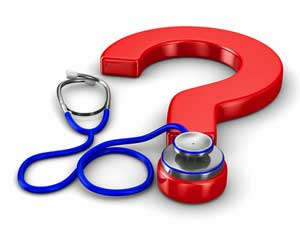
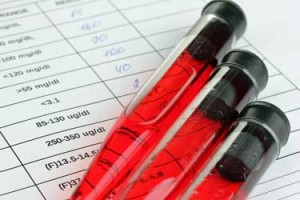



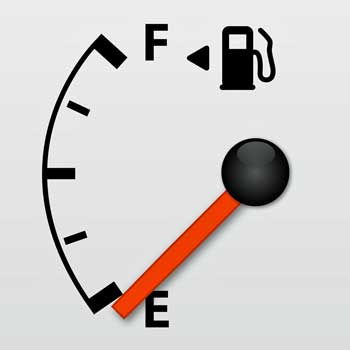
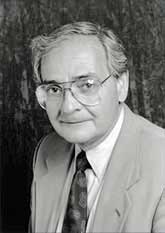





WOW – thanks to all the doctors for this info and for organizing it Cort.
All but 1 expert paid attention to her resolution of pain while on Cipro. I wonder if she has a bacterial tick-borne infection? I hope she reads “Why Can’t I Get Better?” by ILADS physician, Richard Horowitz, MD.
That was fascinating wasn’t it….Her pain – which is really severe – disappeared temporarily on Cipro…That was amazing…It must mean something….
A huge THANK YOU to all our experts who answered Beverly’s questions! We patients appreciate each one of you more than you can imagine! Cort, this was a great idea and thank you for all of your effort in bringing this about!
Thanks Nita. I found the similarities and divergences in the answers very interesting.
Thanks so much Cort for putting together this great article and opportunity for people to ask their questions and to all the experts for their valuable time and insights.
I found it interesting that Dr Batemen commented on her IgG antibodies rising over time and said that was unusual. I’ve had the same experience even after a year on high dose Famvir and am still having IgM showing up as well. Wish they could figure out what was up with that.
I wonder if Pridgen’s two drug combo (when we find out what that is) would work for you. Maybe you’re just missing that extra punch?
I do believe that Montoya and Lerner use high IgG readings – in the presence of the right symptoms – to diagnose viral reactivation
My daughter is a patient of Dr. Bateman’s. My daughter’s labs show a lot of IgG subclass, IgA and IgM irregularities in addition to the very “typical” ME viral titers (EBV, HHV-6 etc.). In her last chart notes, Dr Bateman is expressed that she may send my daughter to an immunologist colleague to look at the IgG irregularities specifically. We’re focusing on sleep and OTS right now to get her in a more physically stable place. However, Dr. Bateman has already mentioned the celecoxib/anti-viral cocktail and my daughter may be a candidate. I’ll keep you all posted to see how it goes!
I love that Dr. Bateman is up on that 🙂 Good luck! Let us know how it goes.
The cipro works because the scarlet fever returned to some degree, I guess.
A question: is it possible that she also had polio as a child?
Why don’t drs. ever address the BRAIN/PRESSURE problem??? The one that makes THINKING impossible, MEMORY LOSS, SPACED OUT FEELING? It’s just too scary to live with!!!
What can help??? WHAT???
Maybe I missed it but I didn’t see Beverly’s age. Unfortunately, ciprofloxacin is usually not prescribed to those over 65 due to increased risk of Achilles tendon rupture;I no longer take it.
I wonder if many FM cases are as seemingly complex as Beverly’s. I had mono decades ago but haven’t ever had EBV checked. My bloods are all WNL though I have many pains similar to Beverly.
Thanks for compiling all of this, Cort.
Two suggestions: 1) take candidazyme to see if Candida is causing problems; if it is, dead Candida will show up in the toilet after a teaspoon or two of candidazyne. This is a big step because Candida could alter all of your blood tests.
And 2) take specific acupuncture points to your acupuncturist — these points elevate the T-cells and your immune system should level out. Email me and I’ll give you the acupuncture points for the immune system: cost1@fastmail.fm The same points docs are using to help cancer patients.
Get off the drugs and try this.
Ron
PS: I’m not a doctor, just someone who has had problems like this for 22 years (my wife too)
I think we all have a Candida problem to different degrees. I have never heard of candidazyme(candidazyne) you spelled it both ways? What is it and where do you get it?
Thanks to all the doctors, this information was interesting and helpful.
interesting that there is pretty general agreement that the treatment she is currently getting is too low a dose to work. Wonder how many other people are getting sub-optimal treatment.
When I read about morning headaches, sore throats and nocturnal waking I immediately thought of nocturnal GERD or silent reflux http://www.webmd.com/heartburn-gerd/guide/laryngopharyngeal-reflux-silent-reflux
this can also cause the raised head pressure that Dee mentions. Disappointing that none of them suggested the simple test of raising the head of the bed to see if it helps. If you have a divan bed this is easily achieved with a piece of wood cut to the width of the bed and taking the feet off the bottom of the bed. If you have high BMI add an extra piece of wood of lower height under the centre of the bed for extra support. There are bed wedges (e.g http://www.amazon.co.uk/Memory-Foam-Reflux-Wedge-Pillow/dp/B00I2SN3UG/ref=sr_1_3?ie=UTF8&qid=1401600773&sr=8-3&keywords=acid+reflux+wedge+pillow ) but that is a more expensive option.
It’s not only too low, most the experts think its the wrong drug entirely….Kind of amazing given that the CMV infection is clearly the big viral culprit.
God bless these pioneering doctors who are trying to help those of us afflicted with these horrific, life-alterting illnesses. The mainstream medical doctors are pretty much clueless.
I’d like to ask though – I’ve been sick for over 10 years – don’t even want to count, although had a lot start going wrong as a teen. Was completely bedridden for several years, now “semi-functioning” (if you can call it that) – l live in my pj’s, rarely leave the house, rarely drive, have no life. I get an occasional good day that seems to come out of nowhere, and I think “I’m cured!” only to collapse in bed the next day.
I was told I have “no immune system and no adrenal function”. On top of that, I am undergoing major surgery next month. I know my body is not ready for this next assault. There is no possible way I can postpone it.
I have allergic reactions to a lot of things I try to take to get myself well. I keep reading that 70-80% of immune system is in gut, but every time I try probiotics or cultured vegetables I get an allergic reaction. (I think that’s one of the things I’m reacting to – and I’ve tried a number of brands, kefir, yogurt). Thought it was leaky gut & taking stuff to try to heal that.
I went on LDN to boost immune function to prepare for surgery, but after going off of pain medication, that is stressing me, so I was thinking of postponing the LDN and going back on pain medication until after surgery. I can not tolerate any stress whatsoever.
I thought maybe during surgery, I might die from the shock to my system; although on the bad days, that may seem like relief. My husband said my kids & grandson still need me.
I don’t know how else to boost my immune system when I keep getting allergic reactions to everything.
How does someone have their case reviewed by this panel of doctors?
Thanks. Also thanks for this site. I’m learning things.
You must use the guidelines for surgery created by ME/CFS doctors and you really need to have saline at least after the surgery.
Check out this blog here from an ME/CFS patient who underwent several surgeries successfully – http://www.cortjohnson.org/blog/2013/08/17/three-months-three-surgeries-no-relapse-a-personal-guide-to-surviving-surgery-with-chronic-fatigue-syndrome-mecfs/
I’m not a doctor but if the pain meds are really reducing your pain I would stay on them for now. The stress from pain is incredible and must in itself be hard on your immune system.
Good luck!
Getting there Cort – keep going until those who know can bring the whole of medical science together and resolve.
Good to see you again Enid – thanks!
Impressive answers from the experts!
The viral part gets my attention since it’s my biggest problem as well – and because we’re still waiting for the Pridgen results. Dr. Bateman mentions something in the Pridgen alley, is this the secrets we are waiting for, famciclovir and celecoxib? Cort, do you know?
Dr. Bateman: «The clinical trial looking at a combination of famciclovir 500 mg and celecoxib 200 mg twice daily for FM may prove to be an interesting treatment for some FM (and indirectly CFS) patients. This provides dual antiviral agents while also providing a potent anti-inflammatory agent.»
What a wonderful idea, Cort! Thank you so much for bringing Beverly’s case to all of these experts. Thank you to Beverly for presenting her case in detail, and thank you to all of the doctors for suggesting ways Beverly might proceed to get better.
It was very enlightening to see all of the different ways that Beverly and her doctor might proceed. I have hope that some combination of them may work for her. (Sounds paltry, but really, hope to get better is HUGE for any of us who are so diminished as to feel we are less alive than undead.)
And, Cort, if possible, please do let us know how one might become one of the patients whose case is reviewed. (If you already have a bunch of cases lined up and can’t use more, that would be helpful to know as well.)
Bravo! Thank you.
We have next months lined up but will be opening it up again after that.
I can’t wait to print out this article to read thoroughly! Thanks soooo much, Cort! In skimming the part about Beverly’s battle with viruses, I wonder if something I found in the past 4 months could help her. I began putting 1/4 teaspoon of baking soda in 16 oz. of water twice a day. My 10-year-long battle with huge chronic cold sores (HSV-1) disappeared! From what I understand, HSV-1 is a stress-activated virus. I had tried EVERYTHING known to man to solve this problem with no results that lasted more than a week or two. It was sooooo depressing!!!! I’m not a doc, but read that viruses thrive in an acidic pH, so maybe the baking soda is making my system more healthily alkaline?? I was amazed at this cheap remedy after all the $$$$$ I have spent to get rid of cold sores for so many years, including massive doses of Acyclovir, Valcyclovir, Lysine, etc. (I made a list of everything I tried at http://www.fms-help.com/coldsores.htm.)
I am a patient of Dr. Teitelbaum’s and also Dr. Kogelnik’s. While Dr. Kogelnik only offered about four treatments that are very risky, Dr. Teitelbaum has helped me tremendously in 1 year with a tailor made protocol of supplements (and thyroid medication). The ProBoost thymic protein is great. No Epstein Barr relapses for the first time in 25 years. I so wish I had borrowed the money to consult with Dr. Teitelbaum several years ago. BTW I have not taken any antivirals yet.
All done without antivirals – good to hear CyberKitty!
Dr. Holtorf is the only one who saw the lack of testing for Lyme disease and confections?! Cough could well be babesia. All symptoms are classic. Unfortunately, it’s almost impossible to “rule out” Lyme disease. Is she from an endemic area, or has she been outdoors in an endemic area (endemic areas are more widespread than commonly thought, also)? Given postive response to short course of antibiotics, if it were me (and this is what I’m doing), I’d pursue Lyme/co-infection treatment.
Ditto.
Issie
Ditto. I think the sore throat is a classic Lyme symptom.
Very interesting exchanges and information! Thanks.
How does a person ask a question for the next one?
Wow. This series should be part of the education of any current medical student. So many good insights!!!
I am absolutely horrified by this patient’s misadventures. In the first place, with respect to the well-being of her soul, her pain needs to be treated in a more systematic matter. It needs to be addressed for 24 hour, seven day relief, whatever the best combination for her of anti-inflammatories, nerve modulators, acetominophin and opiates. Some of the doctors have made suggestions referencing gabapentin and cymbalta, which is fine, but you have to keep in mind that these are known to work for some kinds of pain, not all. I hope they will work for the patient, as it is a lot easier to get these prescribed and bought than opiates.
The patient does not name her “pain pills” and takes them only occasionally despite significant long term pain. The sad fate of people cursed with receptors (and unhappiness) that inncline them to addiction has made government and medical personnel very skittish about prescribing. But if she can be safely managed without acceleration in dose it is worth some thought to an appropriate regime. Remember, the Lord created the opium poppy; it is there for mankind’s benefit when used properly in a disciplined regime.
However, I never had any experience of opiates until I was over 50. What I had discovered when I was younger was that some excellent medications have fallen out of use in America because they were supplanted by better advertised and more profitable new drugs. I was horribly crippled, pain-ridden and kicked about for six months by unfocused American doctors when a (private, but complimentary to me) British neurolologist diagnosed cervical disk problem and gave me Indomethacin. Within three days my swelling and muscle contraction were down and I could lie straight and participate in life for the first time in months. I didn’t have to keep on taking it, but it did get me out of a vicious circle. Years later it cut down the swelling enough so I could get my ski sweater off following what was likely a rotor cuff tear.
None of this means much more shouldn’t be done for the patient’s overall cure. But a little relief seems in order meanwhile.
I totally agree. Again and again I read about people with FMS, CFS, Lyme, who are horribly undertreated for pain. Untreated pain is not benign; it causes breakdown of hormonal and neurological systems. Currently the pendulum of public opinion is swinging “anti-opioid” but still nothing better has yet been invented for treating pain. Opioid side effects are minimal compared with NSAIDs, antidepressants, and anti-epileptics, and far more effective.
I agree. If they are truly needed a person should be able to have them. My pain specialist ALWAYS makes sure I’m taking them as prescribed. I have for two years now. Abusing my pain meds would only hurt me and I’m not willing to make that choice.
This all sounds so very familiar, unfortunately. I have had mono (possibly a re-activation) this winter that just will not go away. With ME/CFS, FM, IC, esophagus problems, failed back surgery, and chronic pain I have suffered low grade fevers off and on for 10 years. With the mono they came on like a vengeance. I found this very interesting for several reasons, too numerous to mention, but there are many similarities between me and this patient. Constant blood work for thyroid problems (which I am sure I have even though the blood work never shows it) and Lupus, which once again never comes back positive, but when your body is constantly attacking all of your organs it is hard to believe it is not there. I am so glad I have a Dr. that believes in pain control, because with out my morphine I was taking so many other things with really bad side effects and very little benefit. With the morphine most days I can at least function and not be bed ridden, those days are still there but not like they were. I do not recommend oxycontitin which what I started on, the body becomes used to it too quick and you are constantly upping the dose which leads to a few days of incapacity. The morphine dose I have been on has been the same for 8 years, there are days which I have to supplement with a PRN med ( I have 3 different ones depending upon what type of pain or how severe) but those are days I am in bed. I hope for us all that Dr’s become more educated, testing becomes more reliable and that the connections between all these ailments are found. I thank God for great bio-feedback training. I pray someday we will all have better care without the prescription pad being the first thing Dr’s use for our care. I have to believe better days are ahead for us all, or it would be to easy to give up. Thank you Cort for the great read and all the educating you do.